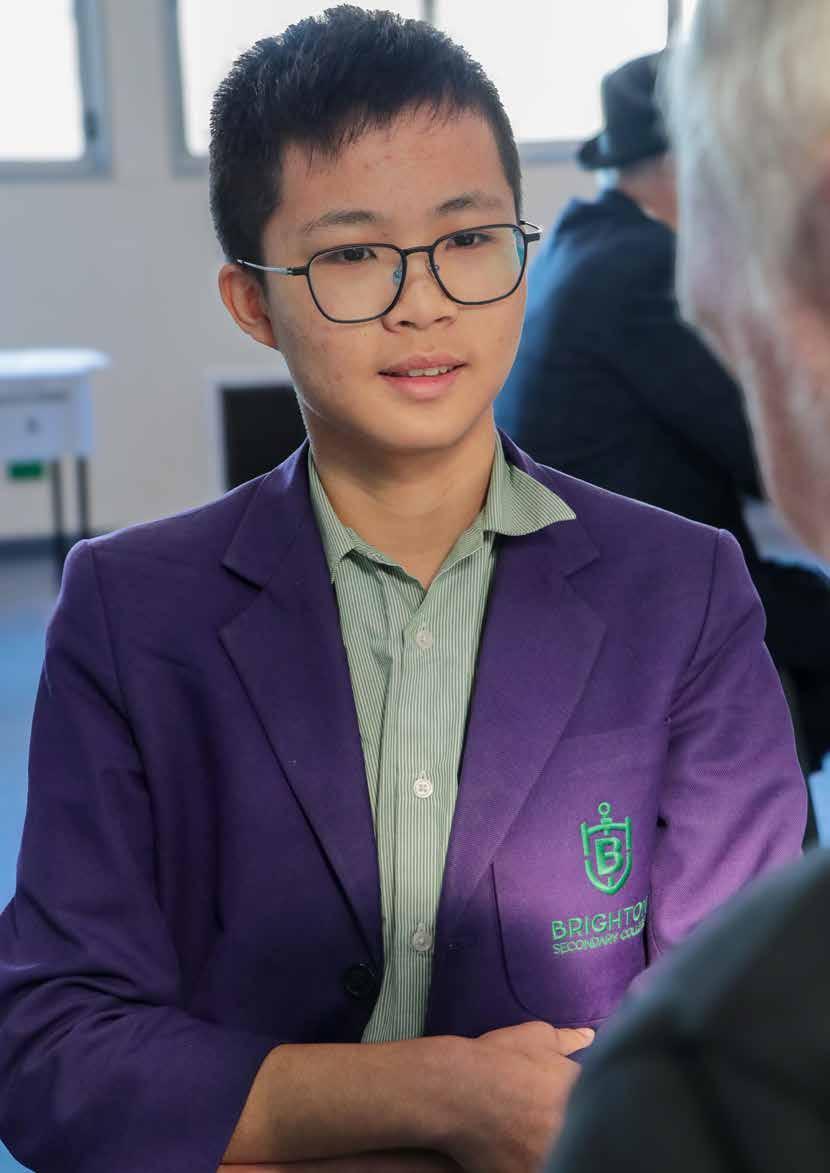

YEAR 10 HANDBOOK
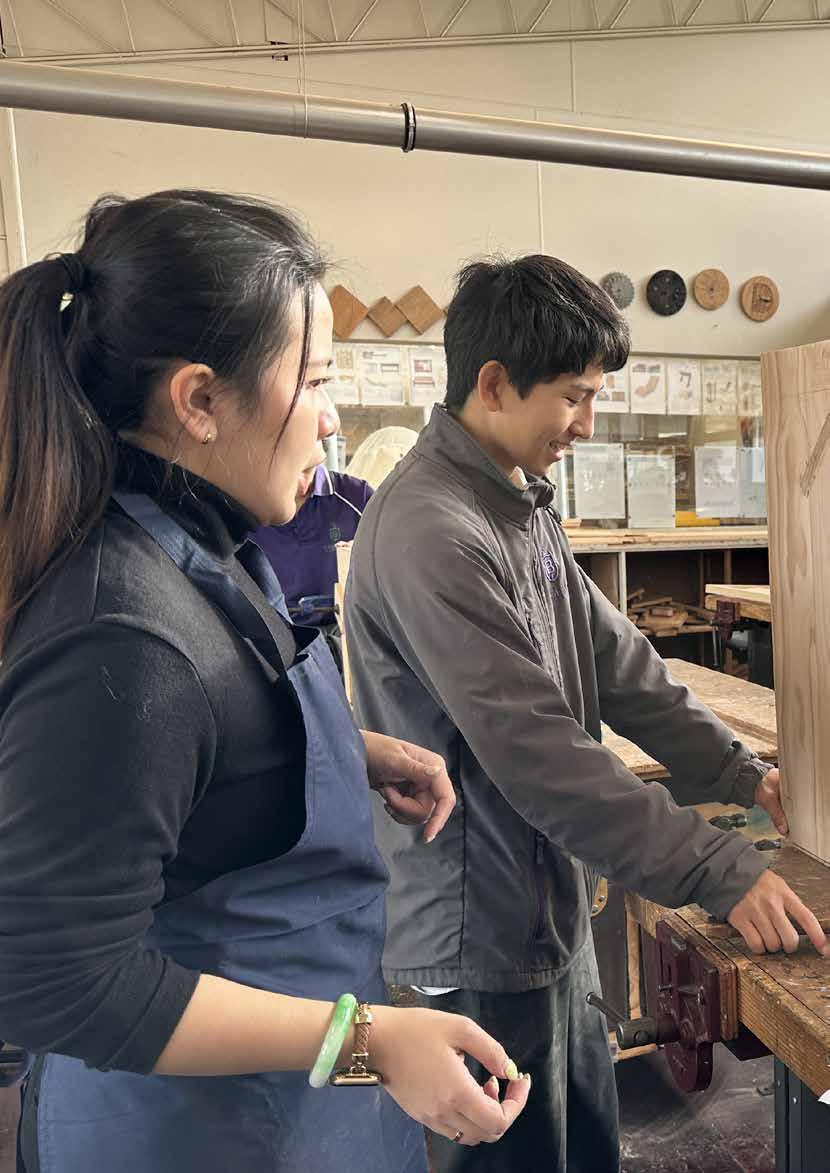
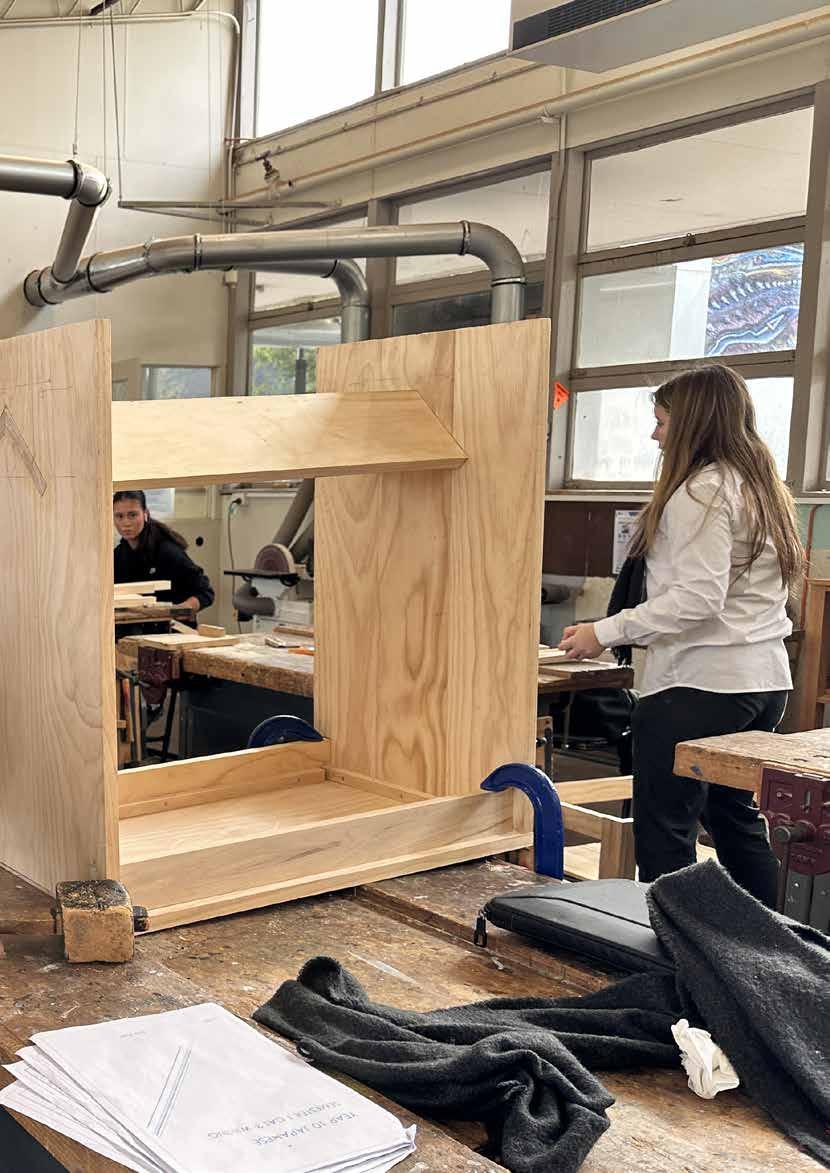
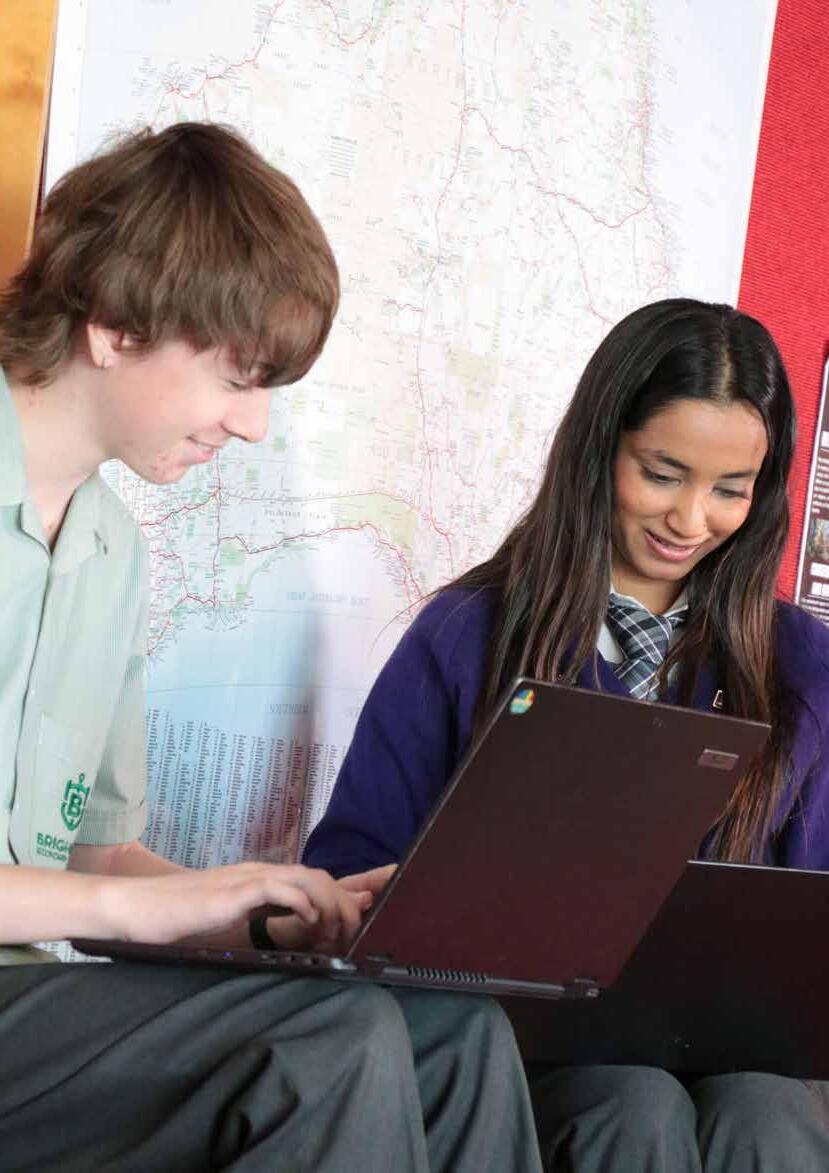
YEAR 10 PROGRAM
Students in Year 10 are entering the Senior School and are beginning the journey towards their future pathways. There is an increased workload and greater expectations of independent study. Students will undertake examinations in all their studies at the end of each semester.
Throughout Year 10, there is a strong emphasis on career exploration and future pathways. Students undertake course counselling interviews, model employment interviews, and listen to guest speakers as part of their career education program. All Year 10 students participate in the work and career experience program.
This handbook outlines possible Year 10 electives and acceleration opportunities for students. Its purpose is to provide students, parents, and carers with an overview of the course structure and a description of the various elective choices.
VCE ACCELERATION FOR YEAR 10 STUDENTS
All Year 10 students will have the opportunity to apply to undertake one VCE Unit 1 and 2 study as part of their Year 10 program. Students will be asked to complete an expression of interest in undertaking an accelerated study as part of their subject selection process.
Decisions regarding placement of students in an accelerated study are based on student interest and pathway, as well as academic results and demonstrated learning behaviours, and are subject to class size and timetabling constraints.
In accepting an offer to accelerate, students, parents, and carers show their understanding that there is an expectation that 5 subjects will be completed during their student’s final year of VCE.
Please see the VCE/VCE-VM Handbook for details of VCE/VCE-VM studies offered at Brighton Secondary College.
CORE SUBJECTS
ENGLISH
THIS IS COMPULSORY FOR ALL STUDENTS FOR BOTH SEMESTERS
This unit is focussed on the study of language by exploring a variety of texts and forms of written and spoken expression. Students learn to appreciate, enjoy and use language. They will develop their ability to explore complex themes, ideas and issues, and develop their ability to refine and express their ideas, both verbally and in the written form.
AREA OF STUDY
• Reading and the study of texts
• The craft of writing
• Speaking and listening STUDENTS WILL FOCUS ON THE FOLLOWING FORMS OF WRITING:
• Creative
• Persuasive
• Expository
• Analytical responses to texts/media
• Argumentative and issues based writing LEARNING OUTCOMES
• Read, view, analyse and discuss contemporary and classical texts
• Analyse and discuss informative and argumentative texts
• Compare and contrast the typical features of particular texts
• Plan, write and present several pieces of writing using various styles
• Proofread and edit work for accuracy, consistency and clarity
• Engage in discussion and provide and justify opinions
• Prepare and deliver presentations that explore complex issues or information to engage an audience
ENGLISH AS AN ADDITIONAL LANGUAGE
This study is for Non-English-speaking students who have been residents in Australia for less than seven years. Tuition in the student’s homeland must be in a language other than English to qualify for this subject.
DESCRIPTION
• Reading a variety of texts
• Text response: including novels and films
• Writing folio: expository, creative, argumentative, analytical
• Listening tasks
• Oral presentations
• Language skills: sentence structure, vocabulary, punctuation and paragraphing LEARNING OUTCOMES
• Speaking and listening
• Reading, writing and viewing TOPICS
• Issues in the media
• Film study
• Text Analysis
• Comparative film and text study
• Grammar, spelling, vocabulary – Education Perfect
• Persuasive Language
HUMANITIES
This compulsory unit aims to develop the students’ skills and knowledge in the following areas:
• History
• Civics and Citizenship
• Economics
• Geography TOPICS
• WWII
• Civil rights and responsibilities
• Justice and the Legal system
• Global wellbeing
• Environmental management
• The global economy
• Consumer choice
LEARNING OUTCOMES
• Analyse events which contributed to the outbreak of WWII
• Analyse the impact of some key wars and conflicts in the twentieth century.
• Explain key principles of the justice system such as fairness, equality, and access.
• Evaluate how just Australia’s legal system is for young people.
• Analyse the impact of human activities on natural systems.
• Describe the impact of resource development and use on a natural environment.
• Identify strategies to address the use and management of our natural environment.
• Describe the relationship between current use of the environment and future availability of resources.
SCIENCE
DESCRIPTION
Year 10 science is an opportunity to develop your understanding of Biological, Chemical, Earth and Physical Sciences and how they relate to everyday life. The year 10 science program will help you to deepen your scientific knowledge; and to decide which fields of science you find the most interesting. It will also help you to understand where science fits within career pathways and specific career choices.
TOPICS
BIOLOGICAL SCIENCES
• The transmission of heritable characteristics from one generation to the next involves DNA and genes.
• The theory of evolution by natural selection explains the diversity of living things and is supported by a range of scientific evidence.
CHEMICAL SCIENCES
• The patterns of Chemistry can be found in the Periodic Table of the Elements, and the way chemical names and formulas are written.
• Different types of chemical reactions are used to produce a range of products and can occur at different rates.
EARTH AND SPACE SCIENCES
• The universe contains features such as galaxies, stars and solar systems and the Big Bang theory can be used to explain the origin of the universe.
PHYSICAL SCIENCES
• The motion of objects can be explained in terms of forces and energy
MATHEMATICS PATHWAYS
YEAR 7
YEAR 8 YEAR 9 YEAR 10 YEAR 11 & 12
MATHS MATHS MATHS ENRICHMENT
GENERAL APPLIED
VCE SPECIALIST MATHS
VCE MATHS METHODS
VCE GENERAL MATHS
VCE MATHS METHODS
VCE GENERAL MATHS
VCE FOUNDATION
VCE FOUNDATION
MATHEMATICS
Year 10 Mathematics is compulsory in both semesters. Based on their performance in Year 9, students may be offered one of three alternative Mathematics subjects:
• Applied Numeracy
• General Mathematics, or
• Enrichment Mathematics
These programs aim to give each student the opportunity to achieve their maximum individual improvement and to better engage with Mathematics. Extension and remedial options will still be available within all Year 10 General Mathematics classes, and the College will continue to aim to prepare all Year 10 students for future studies. Year 11 Mathematical Methods will be open to both Enrichment and General students who demonstrate the necessary attitude and skills during Year 10.
APPLIED NUMERACY
This subject focuses on applying mathematical skills on a personal level. There is a heavy focus on the mathematical processes’ students would use in their daily lives, as well as skills they might need for a future workplace. The subject will avoid heavily abstract algebraic topics. Students will often be working on application projects which could include:
• Financial projects such as evaluating interest rates, tax statements, mortgage payments, and superannuation choices
• Consumer projects such as determining the best value and discount comparisons
• Business projects such as organizational skills using spreadsheets
• Measurement projects such as creating blueprints for architecture
• Probability projects such as investigating issues about gambling
This subject will help students prepare for their lives beyond school as well as prepare students for VCE Foundation Mathematics should they choose to continue their mathematics classes at a VCE level.
GENERAL MATHEMATICS
This subject aims to give students the opportunity to:
• Demonstrate useful mathematical and numeracy skills for successful general employment and functioning in society
• Develop specialist knowledge in mathematics that provides for further study in the discipline
• See mathematical connections and be able to apply mathematical concepts, skills and processes in posing and solving mathematical problems
• Build confidence in their own knowledge of mathematics, and to feel able to acquire and apply new knowledge and skills when needed
• Become empowered through knowledge of mathematics as a numerate citizen, able to apply this knowledge critically in societal and political contexts
• Develop understanding of the role of mathematics in life, society and work, the role of mathematics in history and mathematics as a discipline – its big ideas, history, aesthetics and philosophy.
TOPICS (SELECTED FROM):
• Indices & Scientific Notation
• Linear Relationships and Graphing
• Expansion and Factorisation
• Measurement
• Geometry
• Trigonometry
• Quadratic functions
• Probability
• Statistics
• Financial Mathematics
ENRICHMENT MATHEMATICS
Enrichment Mathematics is specifically designed to meet the needs of students who are passionate and highly engaged with their mathematical studies. While selecting from the same topics as Year 10 General Mathematics and additional topics students will have the opportunity to undertake acceleration activities and enriched tasks designed to expand their mathematical knowledge and skills.
Selection will be based on demonstrated strong ability in Year 9 Mathematics, especially in algebra, as well as a strong, positive attitude to learning. Students who are one semester or more ahead for Number and Algebra on their Semester 1 report, and who have been awarded a ‘Very Good’ or higher rating on all their work habits will be offered a place. A second round of offers may be made based on Semester 2 results and availability of places.
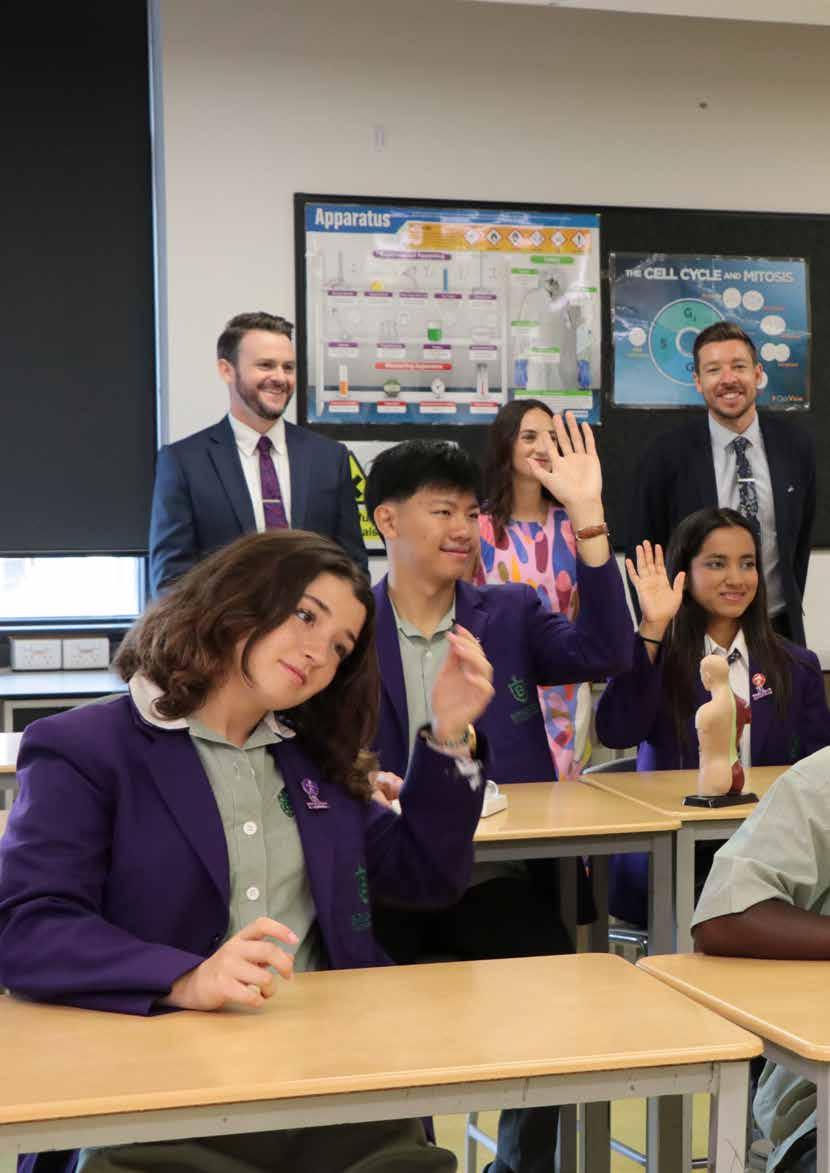
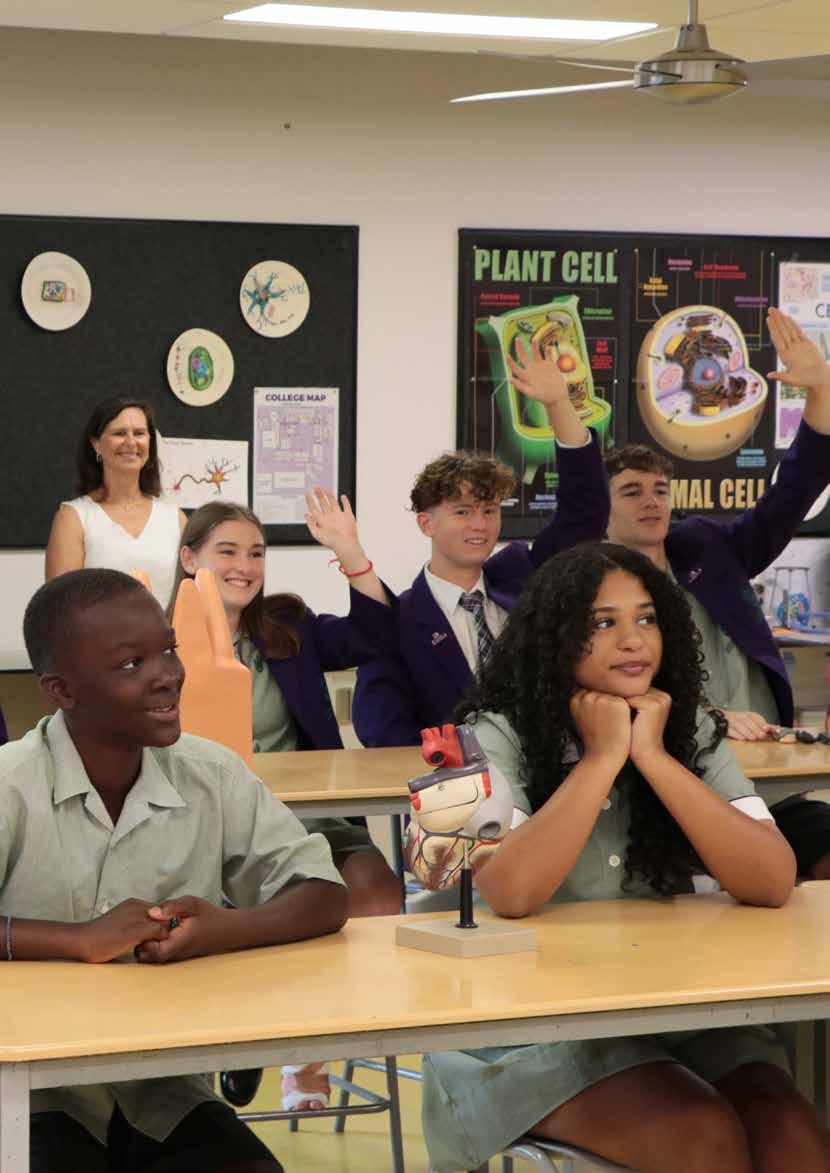
THE CREATIVE ARTS
DANCE
DESCRIPTION
This study introduces students to:
• Dance styles; experiment, develop and refine the elements of dance, physical and expressive skills, and stylespecific techniques including; Ballet, Jazz, Tap, Hip-Hop, Belly dancing, Flamenco.
• Choreography; how to begin making dances and the variety of ways you can approach it.
• Performance analysis; reflect on, analyse, evaluate and document their own and others’ dance works to inform choices and interpretations they make as dancers, choreographers
• In the second term students will be offered the opportunity to attend a live dance performance and participate in several dance workshops with a range of current industry professionals.
TOPICS
• The history of different styles of dance
• Elements of dance
• Choreographic devices
• Style specific techniques
• Improvisation
• Production elements
• Safe dance practices LEARNING OUTCOMES
• Students learn and develop skills and techniques in a range of dance styles.
• Students work individually and collaboratively to create dances that communicate ideas, perspectives and meaning.
• Students plan, rehearse, refine, present and perform dances to a range of audiences in a range of settings, both informal and formal.
• Students analyse and evaluate how the elements of dance, choreographic devices and style-specific techniques are manipulated in dance they create and present to audiences and in works they experience.
• They document, reflect on, analyse and evaluate their own and others’ work using relevant dance terminology.
DRAMA
DESCRIPTION
This study introduces students to:
• Group performance including interpreting established texts and writing realistic scripts using established dramatic forms and styles
• Solo Performance incorporating a variety of Non-Naturalistic theatrical styles and conventions
• Developing and understanding of analytical skills
• In the second term students will be offered the opportunity to attend a live theatrical performance and participate in a Q&A session with the actors and the production team.
TOPICS
• Improvisation
• Naturalistic Theatre & The Stanislavsky Method Non-Naturalistic Theatre and its conventions
• Expressive Skills & Acting techniques
• Areas of stagecraft; costume/set/sound/lighting design, direction and stage management
• Use of dramatic elements, forms, styles and conventions to convey meaning
• Interpretations of texts, characters and scripts from a range of cultural sources and theatrical styles.
• Analysis of Performances LEARNING OUTCOMES
• Develop the use of expressive skills for performance
• Develop the ability to design costumes/set/sound/lighting for the theatre
• Interpret and present dramatic work that explores with depicting real life on stage
• Devise and present dramatic works that explores a range of themes, issues and ideas both individually and collaboratively
• Analyse and interpret the structure, content and aesthetic qualities of drama and the role of drama within different cultural contexts.
MUSIC
DESCRIPTION
This study introduces students to:
• Solo/group performance incorporating a wide variety of musical styles.
• Musical analysis and development of aural skills, theory and Music notation.
• The use of music technology including software to compose and arrange music.
• Effective approaches to Personal Practise, Performance and Composition.
• Investigate and study the development of contemporary music. TOPICS
• Group Performance
• Popular Contemporary Music
• Approaches to stylistic versatility
• Composition and arrangement
• Musicianship
• Develop a practise routine LEARNING OUTCOMES
• Learn, rehearse and develop an approved repertoire of music for live performance
• Develop musicianship skills including aural and theory skills, rhythm, analytical and stylistic depth of knowledge
• Develop accomplished instrumental skills on a chosen instrument/vocals
MEDIA
DESCRIPTION
Studying Media will provide students with the opportunity to develop vital skills and knowledge relating to mass communication in the modern age.
Media texts (films, photographs, newspapers, etc.), technologies (cameras, editing software) and processes (planning, creation and publishing) will be analysed from different angles including their structure and features, methods of production and distribution, audience reactions and their impact on society.
The study of Media is relevant to students with a wide range of interests and skills, including those who wish to pursue further study in Media at VCE, the tertiary level or in vocational education and training settings, as well as providing valuable knowledge and skills for active participation in contemporary society.
AREAS OF STUDY
• Media forms including:
• Audio visual media (film, television, radio, video, photography).
• Print-based media (newspapers, magazines and related publications).
• Digital media technologies (the Internet, computer games and interactive multimedia).
• The media and its relationship with society and culture.
TOPICS
• Investigation of several aspects of the media industry and identifying what makes successful products.
• Using movie making software, digital photography and audio software to create specific designs and resources, ie. advertisements, film, photo storyboards, magazine layouts.
• Create and publish a short video film.
• Develop teamwork and communication skills between the group members.
• Encourage leadership and/or supervisory roles within teams.
LEARNING OUTCOMES
• Analyse and develop solutions to information problems, for example, creation of a short film, both individually and as a team member, using a range of skills, processes and equipment.
ART MAKING AND EXHIBITING
DESCRIPTION
This study introduces student to:
• Materials and techniques
• Document and evaluate individual art making
• A study of how artists communicate ideas and meanings and is strongly recommended for students wanting to study Year 11 and Year 12 Studio Art. TOPICS
Overall Focus: Modernist Art of the 20th Century.
• Drawing: techniques
• Painting: extension from one of the above, beginning with experimenting with acrylics, watercolours on a range of material mediums and techniques, completing one major artwork
• Printmaking: research ideas and techniques and produce an edition of prints LEARNING OUTCOMES
• To enable students to compile a folio of art work which addresses all the above disciplines and illustrates evidence of a development of student’s individual style and an appreciation of art aesthetics.
• The acquisition of skills enabling an individual or group presentation of an written, oral or power point assignment; which addresses the historical content of the course.
• To enable students to complete a major art piece in one or more of the listed disciplines and topics as listed.
VISUAL COMMUNICATION AND DESIGN
DESCRIPTION
This study introduces students to
• Architectural Drawing Plans
• Poster, Packaging & Designs
• A range of both computer and technical drawing
• Rendering techniques using different media TOPICS
• Conceptualizing ideas through brainstorming
• Analysis of graphic materials
• Developing designing and finishing new products and building plans
• Final presentation of folio work LEARNING OUTCOMES
• To enable students to develop skills in presentation of design work.
• To develop skills in graphic design and folio presentation.
• To enable students to complete a major graphics piece from initial idea to folio presentation.
TECHNOLOGY
ICT AND BUSINESS
This subject aims to introduce students to ICT, financial literacy and current issues that are relevant to business environments. A range of topics and software are covered and students complete a research presentation on business or technology.
TOPICS
Students will be involved in the following areas of study and skill development:
• Learning basic skills in Adobe Photoshop to create advertising products for their fictional business, and images for a website
• Learning a range of skills in Excel
• A range of theory topics related to ICT issues, technology and ethics in Business
• Financial literacy covering a range of topics including interest, investments, credit cards, costs of purchasing a car and budgets
LEARNING OUTCOMES
• Analyse and develop solutions to information problems, both individually and as a team member. To get exposure to software, theory knowledge and ICT skills that will help students in their business lives.
DIGITAL IMAGING 2
DESCRIPTION
In this subject students develop knowledge and skills in the creation and use of web publications and digital imagery. This subject can prepare students for Year 11 ICT, Media, Visual Communication and Design and further tertiary study.
TOPICS
Students complete a range of tutorials and creative projects that focus on developing practical skills that can be applied to ICT and further digital practices
Students will complete a digital portfolio of work
Students gain an understanding of a range of roles that digital designers work within, including web publishing and online media
LEARNING OUTCOMES
• Students will analyse and develop solutions to information problems, both individually and as a team member, using a range of skill, processes and equipment.
• Students will also demonstrate skills and an understanding of:
• Image creation and digital manipulation using
• Adobe Photoshop and Adobe Illustrator
• Web page construction using WordPress and Dreamweaver
• Design and presentation principles for all media forms, how to make an impact to targeted audience
• Application of future career interests to specific skills and understandings of ICT, digital imagery and media jobs
DESIGN TECHNOLOGY: TEXTILES
DESCRIPTION
Students are introduced to garment construction, pattern layout and cutting, folio development, applying the design elements and principle, fashion illustration and relevant technology such as the CRICUT machine. Students will produce a design folio and make a garment. There is an end of semester examination. TOPICS
• Understand and learn the product design process.
• Design and construct a garment using a commercial sewing pattern.
• Evaluate production process and finished product.
• Develop a client specific design folio, including a design brief, evaluation criteria, research and sketches. LEARNING OUTCOMES
• Understand and learn the product design process.
• Design and construct a garment using a commercial sewing pattern.
• Evaluate production process and finished product.
• Develop a client specific design folio, including a design brief, evaluation criteria, research and sketches.
DESIGN TECHNOLOGY: WOOD
DESCRIPTION
Students construct a coffee table and/or other wooden projects using hand tools and some machine tools to develop skills in measuring, marking out, sawing, planing, chiselling and sanding. TOPICS
• Health and safety
• Working from and developing innovative plans
• Production processes and techniques
LEARNING OUTCOMES
• Analyse the appropriateness of using particular materials.
• Prepare detailed design proposals, using traditional equipment and new technologies.
• Opportunities to integrate laser cutting and CAD/CAM technology into finished products
• Make products using some complex equipment.
• Develop innovative solutions to problems using qualitative and quantitative methods.
FOOD STUDIES & NUTRITION
DESCRIPTION
This course allows students to look at hygiene and safety in food handling. Students will follow a course of study based Year 10 Food Studies examines hygiene and safety in food handling. Students will follow a course of study based on the nutrients, factors influencing food choice and associated dietary-related diseases.
Students develop their skills in descriptive writing in food preparation processes and describing sensory properties of food and presenting work using different forms of ICT. Production classes focus on exploring a wide range of different cooking methods, and students prepare dishes which are specifically linked to the learning outcomes.
TOPICS
• nutrition,
• the design process
• food chemistry
LEARNING OUTCOMES
• show a clear understanding of major vitamins and minerals and show a clear understanding of diet-related diseases.
• demonstrate an understanding of the design process and creation of a menu based on healthier alternatives
• prepare nutritious dishes that reflect healthy eating habits
HEALTH & PHYSICAL EDUCATION
SPORT & FITNESS
DESCRIPTION
This elective develops students’ coaching, leadership, and fitness skills through a mix of practical and theoretical learning.
PRACTICAL CONTENT
Students will explore gym program designs, effective coaching strategies, safe lifting techniques, traditional and international sports such as Touch Rugby, Touch NFL, Korball, Gaelic Football. Students will also participate in coaching and umpiring junior PASE.
THEORETICAL CONTENT
Students will study fitness programs and have an understanding of ways to improve relative fitness, they will develop their own training program based on training principles, training methods and fitness components.
Students will study different coaching styles, stages of learning and various forms and methods of practice. They will look at different ways to set up training sessions such as open and closed skills, part and whole practice.
ASSESSMENT
Both the practical and theoretical components of this subject must be passed. Assessment includes the following:
• Practical participation, teamwork and game play within SEPEP units.
• A written training program that covers all of the theory (principles, methods and components)
• Delivering a series of training sessions to either the class or junior PASE teams.
• An end of year exam
SPORT SCIENCE
THE SKELETO-MUSCULAR SYSTEMS
• Students will be introduced to the Skeleto-Muscular systems. They will study each in turn and then their interactions that lead to sporting performance.
• Nutrition and performance enhancement
• Students are introduced to the nutritional requirements of athletes throughout all phases of an event; prior to, during and post, that may maximise their performance. They will also study methods of legally enhancing an athletes performance through training and dietary supplementation. Doping and other illegal methods of performance enhancement, WADA and the anti doping code are also covered.
T BIOMECHANICS
Students will be introduced to Biomechanics; including motion, human movement, newton’s three laws, forces, levers, centre of gravity and momentum.
PHYSICAL ACTIVITY PROMOTION
• Students will investigate the benefits of physical activity and identify barriers and enablers to physical activity that may be experienced across a variety of demographics. They will critique an existing physical activity promotional strategy and develop one of their own.
HEALTH & HUMAN DEVELOPMENT
DESCRIPTION
This semester-long elective introduces students to key concepts in Health and Human Development. Students will explore the following topics:
• Dimensions of health and well-being
• Youth health issues and risk factors
• Human lifespan
• Nutrition and its role in development
• Global health
Students will develop skills in health literacy, critical thinking, and data interpretation through case studies, group projects, and independent research. The subject fosters empathy, informed decision-making, and an understanding of the complex factors that shape health outcomes in Australia and globally.
OUTDOOR EDUCATION
(ONE SEMESTER SUBJECT)
DESCRIPTION
Outdoor education aims to introduce students to sustainable relationships between people and natural environment. Students would be involved in a range of outdoor activities and will be introduced to skills and techniques required for safe participation in the outdoors and general community, while developing an appreciation and understanding of the natural environment.
PRACTICAL CONTENT
Students will have the opportunity to participate in a wide range of practical based activities. These may include:
• Bush walking and camping
• Water based activities including swimming, surfing, and snorkelling
• Bike riding
• Rock climbing
THEORETICAL CONTENT
Students will investigate the theory component for certain outdoor activities as well as a number of learning modules being undertaken. The modules completed will be based on community, communication and project management. Students will complete an assessment task each term, demonstrating subject specific content knowledge
ASSESSMENT
There are theoretical and practical components of this subject, all need to be undertaken.
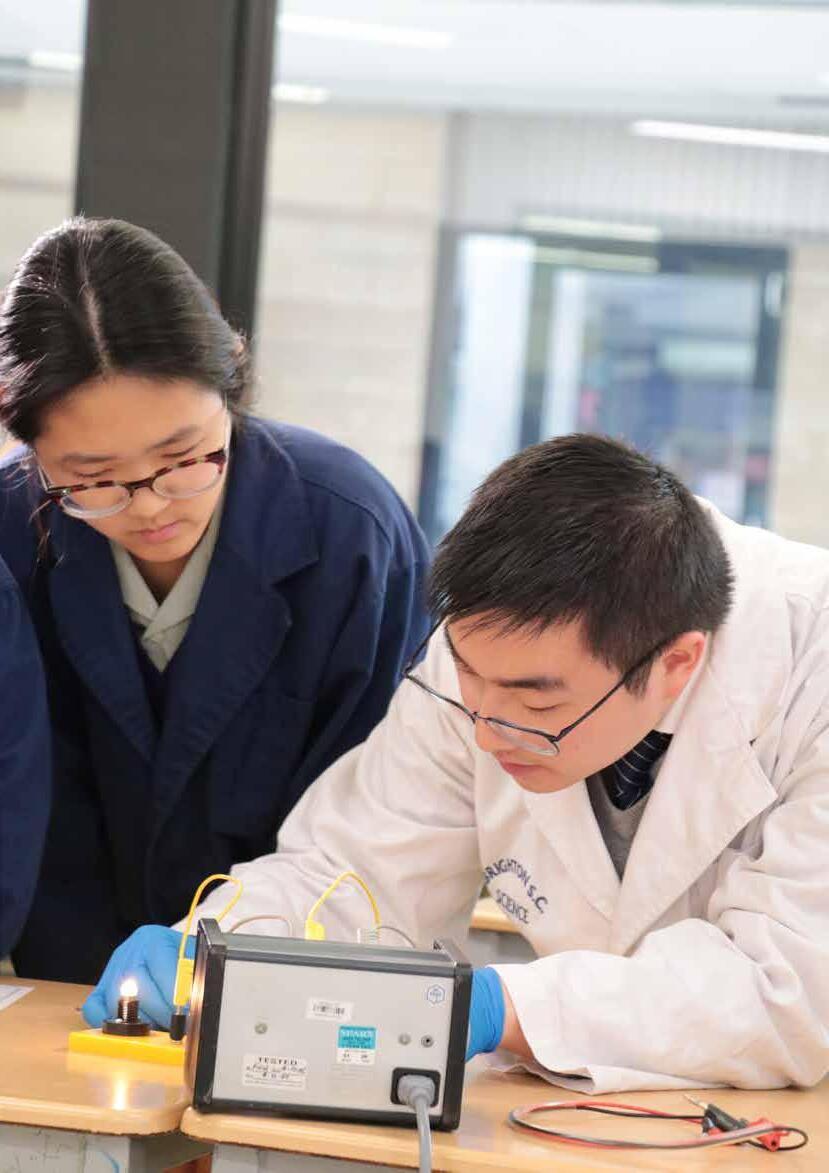
LANGUAGES
FRENCH
DESCRIPTION
The Year 10 French course corresponds very well to students who wish to become more advanced in French. Basic structures of French will be reinforced using graded reading materials and written tasks. It equips students to study French at VCE level.
TOPICS
French language and culture is taught through examination of the following topics:
• Friendships
• Childhood Memories
• Historical Figures
• The Environment
• Future Aspirations
LEARNING OUTCOMES
• Listening – Use context and resources to decipher meaning.
• Speaking – Be able to sustain a short conversation on a given topic
• Reading – Show comprehension of a written document and identify important grammatical features of the text. Writing – Write short pieces in French
JAPANESE
Students should have completed Units 1- 4 of Obento Supreme or equivalent.
DESCRIPTION
The course is intensive and equips students with the necessary skills for VCE Japanese.. The emphasis is on communication competence and practical language skills, as well as proficiency in reading and writing Japanese scripts in a variety of contexts. Students will develop skills in understanding modified materials and communicating in a variety of situations.
TOPICS
Japanese language and culture is taught through the following topics:
• Shopping
• Describing People
• Food and Restaurants
• Japanese and Australian Schools
• Giving Directions
• Sports and Hobbies
• Part-time Jobs
LEARNING OUTCOMES
• Listening – Use context and resources to decipher meaning.
• Speaking – Sustain a conversation of three to five minutes using suitable pronunciation and intonation.
• Reading – Demonstrate comprehension of various types of modified written texts.
• Writing – Write and structure a text according to its text type, using known vocabulary, script, and grammatical patterns.
